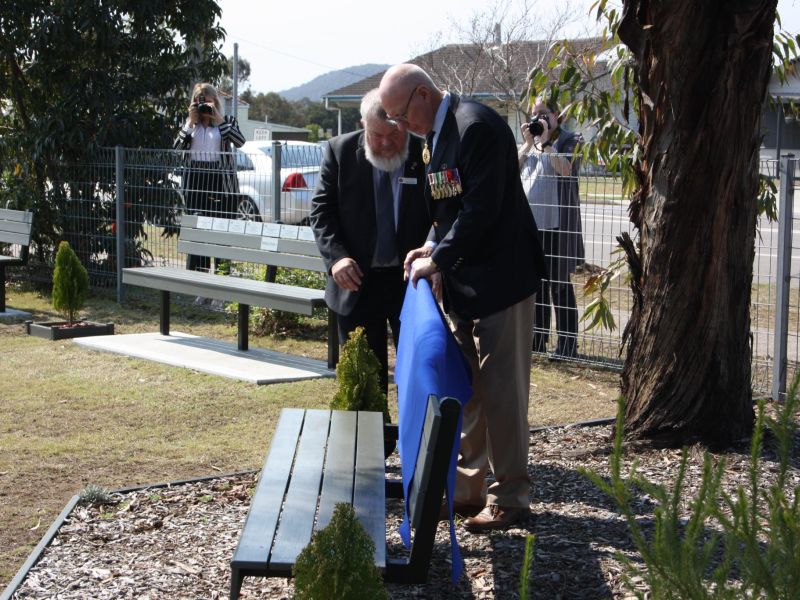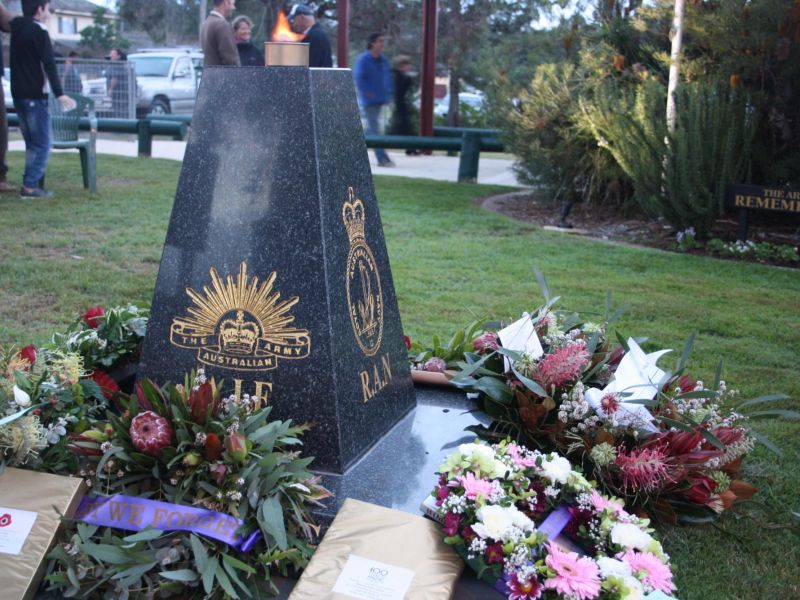Lost diggers honoured by NSW Governor a century on from service
Twenty soldiers from the villages of Kearsley, Edenville and Abernethy who had disappeared from the nation’s collective memory were honoured and remembered at a ceremony by the then-Governor of New South Wales, His Excellency General The Honourable David Hurley AC DSC (Ret’d) on Tuesday, 11 September 2018.
The Kearsley Community Dawn Service Committee hosted a remembrance ceremony for 20 young men who were engaged in conflict during World War One but received no public recognition of their service.
In early 2018, the Committee uncovered the identities of the men who had lived and worked in the small villages of Kearsley, Edenville and Abernethy, before enlisting and travelling to Gallipoli and the Western Front.
“The discovery of these 20 young men has been incredibly important for our community by providing a local connection to the courage and bravery demonstrated by the Australians during World War I”, Committee Chair, Jordan Fallon said.
“Everyone has been swept up in the excitement of the finding. From retirees to school children, so many people from Kearsley and Abernethy have immersed themselves in researching the lives and stories of each man”.
During the remembrance ceremony, Governor Hurley unveiled 20 memorial plaques to commemorate the service and sacrifice of each of the recovered soldiers, which will be located in the Kearsley Remembrance Garden that has been established by the Committee to honour local service personnel.
“The Governor’s attendance and participation in the ceremony was an incredible mark of respect to each of these men who served our community and country with pride and courage. These memorial plaques are now in perpetuity – they will never be forgotten again.”
Four of the 20 uncovered soldiers were killed in action during World War One, including Private Reuben Rundle of Edenville who was killed during the Battle of Pozieres.
Private Rundle left his employment at the Abermain No. 2 Colliery to answer the call to duty and arrived on the Western Front in June 1916 with the 19th Battalion.
Less than 8 weeks after his arrival, Private Rundle was killed in action.
“Private Rundle’s service reveals the tragedy of World War One. Clearly influenced by the propaganda of the time, at just 20 years of age, he left his family and travelled to a foreign land, only to spend six weeks on the frontline before being killed”, Mr Fallon said.
“Private Rundle’s mother never recovered from her son’s death. She died without ever knowing what happened to her son. There could be nothing crueller for a grieving mother.”
Private Rundle’s body has never been recovered and is remembered at the Australian National Memorial at Villers-Bretonneux.
- Cessnock Advertiser https://www.cessnockadvertiser.com.au/story/5653262/diggers-sacrifice-enshrined/

 Jordan Fallon
Jordan Fallon